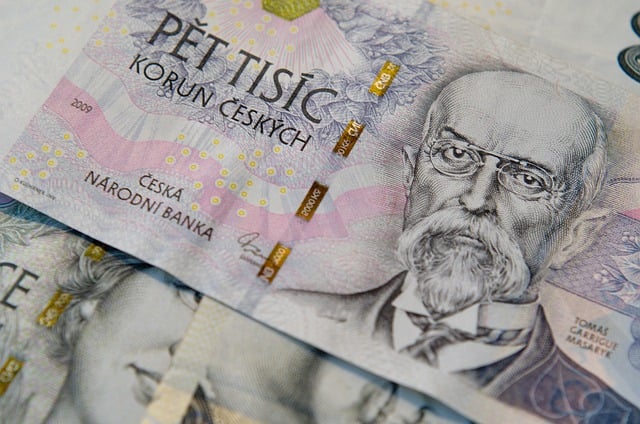Average Salaries in France by Industry

France boasts a diverse economy with a wide range of industries, each offering varying levels of compensation based on factors such as demand, skill requirements, and geographic location. Understanding average salaries across different sectors can help job seekers, expatriates, and businesses make informed decisions about employment opportunities and career paths. Below is an overview of average salaries in France by industry, along with insights into the factors influencing these figures.
1. Overview of Average Salaries in France
As of recent data (2023 estimates), the average gross monthly salary in France is approximately €3,600–€4,000 , depending on the source and methodology. However, this figure varies significantly by industry, experience level, and region. After deductions for taxes and social contributions, the net salary typically ranges between €2,200 and €2,800 per month .
Key factors affecting salaries include:
- Industry: High-demand sectors like technology and finance tend to offer higher wages.
- Location: Paris and other major cities have higher salaries but also come with a higher cost of living.
- Experience and Education: Senior professionals and those with specialized skills earn significantly more than entry-level workers.
2. Average Salaries by Industry
1. Information Technology (IT) and Tech
The tech industry is one of the fastest-growing sectors in France, driven by innovation hubs like Paris, Lyon, and Bordeaux. Salaries in IT are among the highest due to the high demand for skilled professionals.
- Entry-Level Developer/Engineer: €35,000–€45,000 annually
- Mid-Level Developer/Engineer: €45,000–€60,000 annually
- Senior Developer/Engineer: €60,000–€90,000 annually
- Specialized Roles (e.g., AI, Cybersecurity): €80,000–€120,000 annually
Tech startups and multinational companies often offer additional perks such as stock options, bonuses, and flexible work arrangements.
2. Finance and Banking
Paris is a global financial hub, home to institutions like BNP Paribas, Société Générale, and Crédit Agricole. Salaries in finance are competitive, especially for roles requiring expertise in investment banking, asset management, or fintech.
- Junior Analyst: €40,000–€50,000 annually
- Financial Advisor/Manager: €50,000–€70,000 annually
- Investment Banker: €80,000–€150,000+ annually (including bonuses)
- Chief Financial Officer (CFO): €150,000–€300,000+ annually
Bonuses and performance-based incentives are common in this sector.
3. Healthcare and Pharmaceuticals
The healthcare industry is highly respected in France, with strong government support and a focus on research and development. Medical professionals and researchers are well-compensated, though starting salaries may be modest compared to private-sector roles.
- General Practitioner (GP): €50,000–€80,000 annually
- Specialist Doctor (e.g., Surgeon): €100,000–€200,000+ annually
- Nurse: €25,000–€40,000 annually
- Pharmaceutical Researcher: €45,000–€70,000 annually
- Executive in Pharma Companies: €100,000–€200,000+ annually
Healthcare professionals in public hospitals may earn less than their counterparts in private clinics but benefit from job security and retirement benefits.
4. Engineering and Manufacturing
France has a robust engineering and manufacturing sector, particularly in aerospace, automotive, and energy industries. Companies like Airbus, Renault, and TotalEnergies are major employers.
- Junior Engineer: €35,000–€45,000 annually
- Senior Engineer: €50,000–€80,000 annually
- Project Manager: €60,000–€90,000 annually
- Executive Leadership: €100,000–€200,000+ annually
Professionals with expertise in renewable energy or advanced manufacturing technologies often command premium salaries.
5. Retail and Hospitality
While retail and hospitality jobs are abundant, they generally offer lower wages compared to other sectors. However, managerial positions and roles in luxury brands can be lucrative.
- Retail Sales Associate: €20,000–€25,000 annually
- Hotel Receptionist: €22,000–€28,000 annually
- Restaurant Manager: €30,000–€45,000 annually
- Luxury Brand Manager: €50,000–€80,000+ annually
Paris, known for its luxury goods sector, offers higher salaries in fashion and cosmetics.
6. Education and Academia
Teachers and academics in France enjoy job stability and generous benefits, though salaries are relatively modest compared to private-sector roles.
- Primary School Teacher: €25,000–€35,000 annually
- Secondary School Teacher: €30,000–€45,000 annually
- University Professor: €40,000–€70,000 annually
- Research Scientist: €45,000–€80,000 annually
Public-sector educators receive pensions and extended holidays, making these roles attractive despite lower pay.
7. Legal and Consulting
Lawyers and consultants in France earn competitive salaries, especially in corporate law, tax advisory, and strategy consulting.
- Junior Lawyer: €40,000–€50,000 annually
- Senior Lawyer/Partner: €80,000–€200,000+ annually
- Management Consultant: €50,000–€100,000+ annually
- Tax Advisor: €50,000–€80,000 annually
Top-tier firms in Paris, such as McKinsey and Deloitte, offer substantial bonuses and international opportunities.
8. Creative Industries (Media, Arts, Entertainment)
Salaries in creative fields vary widely depending on the specific role and employer. Freelancers and artists often face income instability, while employees at large media companies enjoy steady paychecks.
- Graphic Designer: €30,000–€45,000 annually
- Journalist: €35,000–€55,000 annually
- Film Producer/Director: €40,000–€100,000+ annually
- Marketing Specialist: €40,000–€60,000 annually
Freelancers in design, writing, or photography must negotiate rates independently.
3. Regional Variations in Salaries
Salaries in France differ significantly by region due to variations in the cost of living and economic activity:
- Paris and Île-de-France: The highest salaries nationwide, reflecting the capital’s status as a business and cultural center. However, the cost of living offsets some of the financial benefits.
- Major Cities (Lyon, Marseille, Toulouse): Competitive salaries, particularly in growing industries like tech and aerospace.
- Rural Areas: Lower salaries but also lower living costs, making them appealing for certain lifestyles.
4. Factors Influencing Salaries
Several factors contribute to salary disparities within and across industries:
- Education Level: Higher degrees and certifications often lead to better-paying jobs.
- Experience: Seniority and proven track records increase earning potential.
- Unionization: Strong labor unions in France advocate for fair wages and working conditions.
- Government Policies: Minimum wage laws and social welfare programs ensure baseline income security.


